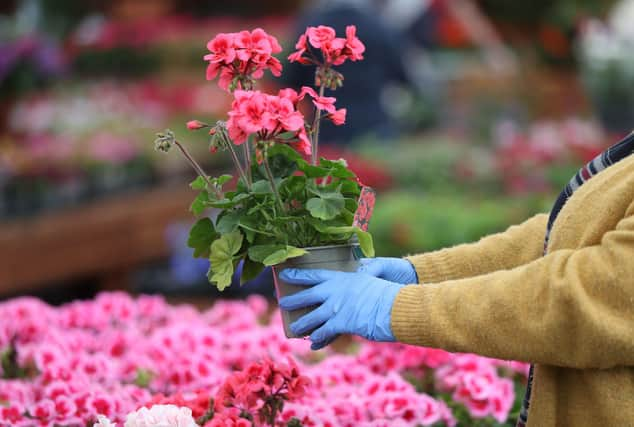Blackfly invasion of my poor geraniums has got me looking for organic ways to fight back – Hayley Matthews


It's amazing to watch my little ones grow flowers as they grow themselves, blossoming into little wonderful souls.
We'd managed to grow sunflowers, sweet peas, jasmine plants, roses, lilies and the favourite – the bright red geraniums. The kids are amazed at just how quickly something can grow from a few seeds and transform into a sea of bright, sweet-smelling petals and leaves.
Advertisement
Hide AdAdvertisement
Hide AdI think it gives them an appreciation of nature, seeing just how wonderful, yet delicate, it can be.
So, as a huge wave of red geraniums started to cover our wall, we noticed some of them getting a little limp and looking a lot duller with a bit of sadness. Over the next few days, they seemed to disintegrate in front of our eyes, falling off the stems and collapsing in on themselves.
On closer inspection, it looked like there’d been an invasion of poppy seeds. The geraniums were absolutely covered with black dots that were sucking the life out of my garden! I'd never had this problem before so was unsure what had happened, then I saw the legs and a little movement, and realised our beautiful geraniums had the dreaded flower plague: blackfly!
If you've been lucky enough to never encounter these wee pests, the Royal Horticultural Society (RHS) says this about blackfly on its website: "These sap-sucking insects can form dense colonies on the soft young growth of many plants. Large populations can weaken host plants and can result in stunted growth."
Advertisement
Hide AdAdvertisement
Hide AdYou don't say, they've absolutely destroyed my garden. However, I can't bring myself to kill them. I've tried spraying them off with a jet hose, flicking them off with my fingers and even shaking the plants to help them move home, but no joy.
I hate chemicals and pesticides and don't want to damage the caterpillars, bees or other garden beasties that help regulate the ecosystem. The RHS website suggests using organic sprays, such as natural pyrethrum, fatty acids or plant oils, because all these can give good control of aphids without killing precious insects that play an important part in the garden. So I'm on the organic case.
I'm even more determined to move them on naturally after finding a bee that we've been trying to nurse back to health the last few days. I thought she just needed some sugar water and a rest. However, this morning her legs were shaking and she was clearly in distress. My suspected diagnosis – a chemical poisoning from pesticides used by someone trying to tackle a similar situation.
So my boys – being the sweet, kind-natured children that they are – are helping make some banana fertiliser and we're going to use it to grow our geraniums back with the knowledge that we're keeping them organically safe for the bees and beasties.
Advertisement
Hide AdAdvertisement
Hide AdIf we could move the blackfly into a little motor home somehow and send them on a camping trip to the neighbours’ garden, then that would be wonderful. In the meantime though, I'm on the organic pesticide hunt and hosing my flowers!
Comment Guidelines
National World encourages reader discussion on our stories. User feedback, insights and back-and-forth exchanges add a rich layer of context to reporting. Please review our Community Guidelines before commenting.
